- Home
- Harlan Coben
Gone for Good Page 9
Gone for Good Read online
Page 9
I also thought about the Garden City man who'd shot Louis Castman and then turned his back, his rejection probably scarring Tanya worse than Castman ever could. I wondered if Mr. Garden City still thought about Tanya or if he'd just gone on as if she'd never existed. I wondered if her face haunted his dreams.
I doubted it.
I thought about all this because I was curious and horrified. But I also did it because it stopped me from thinking about Sheila, about what she'd been, about what Castman had done to her. I reminded myself that she was the victim here, kidnapped and raped and worse, and that nothing she had done had been her fault. I should not view her any differently. But this clearheaded and obvious rationale would not stick.
And I hated myself for that.
It was nearly four in the morning when the van pulled up to my building.
"What do you make of it so far?" I asked.
Squares stroked his stubble. "What Castman said at the end there.
About it never leaving her. He's right, you know."
"You speaking from experience?"
"As a matter of fact, I am."
"So?"
"So my guess is that something from her past came back and got her."
"We're on the right track then."
"Probably," Squares said.
I grabbed the door handle and said, "Whatever she's done whatever you've done it may never leave you. But it doesn't condemn you either."
Squares stared out the window. I waited. He kept staring. I stepped out and he drove away.
A message on the phone knocked me back a step. I checked the time on the LCD. The message had been left at 11:47 P-M- Awfully late. I figured it had to be family. I was wrong.
I hit the play button and a young woman said, "Hi, Will."
I didn't recognize the voice.
"It's Katy. Katy Miller."
I stiffened.
"Long time, right? Look, I, uh, sorry I'm calling so late. You're probably asleep, I don't know. Listen, Will, could you give me a call as soon as you get this? I don't care what time it is. I just, well, I need to talk to you about something."
She left her number. I stood there, dumbstruck. Katy Miller. Julie's little sister. The last time I'd seen her .. . she'd been six years old or so. I smiled, remembering a time sheesh, Katy couldn't have been more than four when she had hidden behind her father's army trunk and jumped out at an inopportune time. I remember Julie and I covering ourselves with a blanket, no time to pull up our pants, trying not to laugh our asses off.
Little Katy Miller.
She'd be, what, seventeen or eighteen by now. Odd to think about. I knew the effect Julie's death had on my family, and I could pretty much surmise what it had done to Mr. and Mrs. Miller. But I'd never really considered the impact on little Katy. I thought again about that time Julie and I had pulled up the blanket giggling, and now I remembered that we'd been in the basement. We'd been messing around on the very couch where Julie would be found murdered.
Why, after all these years, was Katy calling me?
It could be just a condolence call, I reminded myself, though that seemed odd on several levels, not the least of which would be the hour of her call. I replayed the message, searching for a hidden meaning. I didn't find one. She had said to call anytime. But it was four in the A. M." and I was exhausted. Whatever it was, it could wait until morning.
I climbed into bed and remembered the last time I'd seen Katy Miller.
My family had been asked to stay away from the funeral. We complied.
But two days later, I went by myself to the graveyard off Route 22. I sat by Julie's tombstone. I said nothing. I did not cry. I did not feel comfort or closure or anything else. The Miller family pulled up in their white Oldsmobile Cierra, and I made myself scarce. But I'd met little Katy's eyes. There was a strange resignation in her face, a knowing that went beyond her years. I saw sadness and horror and maybe I saw pity too.
I left the graveyard then. I had not seen or spoken to her since.
Belmont, Nebraska Sheriff Bertha Farrow had seen worse.
Murder scenes were bad, but for overall vomit-inducing, bone-crunching, head-splitting, blood-splattering grossness, it was hard to beat the metal-against-flesh effect of an old-fashioned automobile accident. A head-on collision. A truck crossing the divider. A tree that splits the car from the bumper to the backseat. A high-speed tumble over a guardrail.
Now, that did serious damage.
And yet this sight, this dead woman at this fairly bloodless scene, was somehow much worse. Bertha Farrow could see the woman's face her features twisted in fear, uncomprehending, maybe desperate and she could see that the woman had died in great pain. She could see the mangled fingers, the misshapen rib cage, the bruises, and she knew that the damage here had been done by a fellow human being, flesh against flesh. This was not the result of a patch of ice or someone changing radio stations at eighty miles an hour or a rush truck delivery or the ill effects of alcohol or speed.
This had been intentional.
"Who found her?" she asked her deputy George Volker.
"The Randolph boys."
"Which ones?"
"Jerry and Ron."
Bertha calculated. Jerry would be about sixteen. Ron fourteen.
"They were walking with Gypsy," the deputy added. Gypsy was the Randolphs' German shepherd. "He sniffed her out."
"Where are the boys now?"
"Dave took them home. They were kinda shook up. I got statements.
They don't know nothing."
Bertha nodded. A station wagon came tearing up the highway. Clyde Smart, the county medical examiner, stopped his wagon with a screech.
The door flew open, and Clyde sprinted toward them. Bertha cupped a hand over her eyes.
"No rush, Clyde. She ain't going anywhere."
George snickered.
Clyde Smart was used to this. He was closing in on , about Bertha's age. The two had been in office for nearly two decades. Clyde ignored her joke and ran past them. He looked down at the body, and his face dropped.
"Sweet Jesus," the M. E. said.
Clyde squatted beside her. He gently pushed the hair back from the corpse's face. "Oh God," he said. "I mean " He stopped, shook his head.
Bertha was used to him too. Clyde's reaction did not surprise her.
Most M. E.s, she knew, stayed clinical and detached. Not Clyde. People were not tissue and messy chemicals to him. She'd seen Clyde cry over bodies plenty of times. He handled each DOA with incredible, almost ridiculous, respect. He performed autopsies as though he could make the person recover. He'd deliver bad news to families, and he'd genuinely share their grief.
"Can you give me an approximate time of death?" she asked.
"Not long," Clyde said softly. "The skin is still in early rigor mortis. I'd say no more than six hours. I'll get a liver temperature reading and " He spotted the hand with the fingers that jutted out in unnatural directions. "Oh my God," he said again.
Bertha looked back at her deputy. "Any ID?"
"None."
"Possible robbery?"
"Too brutal," Clyde said. He looked up. "Someone wanted her to suffer."
There was a moment of silence. Bertha could see tears forming in Clyde's eyes.
"What else? "she asked.
Clyde quickly looked back down. "She's no vagrant," he said. "Well dressed and nourished." He checked her mouth. "Decent enough dental work."
"Any signs of rape?"
"She's dressed," Clyde said. "But my God, what wasn't done to her?
Very little blood here, certainly not enough for this to be the murder scene. My guess is that someone drove by and dumped her here. I'll know more when I get her on the table."
"Okay then," Bertha said. "Let's check Missing Persons and run her prints."
Clyde nodded as Sheriff Bertha Farrow started walking away.
Chapter Thirteen.
I didn't have to call Katy back.
&nbs
p; The ring hit me like a cattle prod. My sleep had been so deep, so total and dreamless, there could be no slow swim to the surface. One moment I was drowning in the black. The next I jolted upright, heart racing. I checked the digital clock: 6:58 A. M.
I groaned and leaned over. The caller ID was blocked. A useless contraption. Everyone you'd want to avoid or who'd wanted to hide simply paid for the block.
My voice sounded too awake in my own ears as I chirped a merry "Hello?"
"Uh, Will Klein?"
"Yes?"
"It's Katy Miller." Then, as if an afterthought, "Julie's sister."
"Hi, Katy," I said.
"I left a message for you last night."
"I didn't get in until four in the morning."
"Oh. I guess I woke you up then."
"Don't worry about it," I said.
Her voice sounded sad and young and forced. I remembered when she was born. I did a little math. "You're, what, a senior now?"
"I start college in the fall."
"Where?"
"Bowdoin. It's a small college."
"In Maine," I said. "I know it. It's an excellent school.
Congratulations."
"Thanks."
I sat up a little more, trying to think of a way to bridge the silence.
I fell back on the classics: "It's been a long time."
"Will?"
"Yes?"
"I'd like to see you."
"Sure, that would be great."
"How about today?"
"Where are you?" I asked.
"I'm in Livingston," she said. Then added, "I saw you come by our house."
"I'm sorry about that."
"I can come to the city if you want."
"No need," I said. "I'll be out visiting my father today. How about we hook up before that?"
"Yeah, okay," she said. "But not here. You remember the basketball courts by the high school?"
"Sure," I said. "I'll meet you there at ten."
"Okay."
"Katy," I said, switching ears. "I don't mind telling you that this call is a little weird."
"I know."
"What do you want to see me about?"
"What do you think?" she replied.
I did not answer right away, but that did not matter. She was already off the line.
Chapter Fourteen.
Will left his apartment. The Ghost watched.
The Ghost did not follow him. He knew where Will was going. But as he watched, his fingers flexed and tightened, flexed and tightened. His forearms bunched. His body quaked.
The Ghost remembered Julie Miller. He remembered her naked body in that basement. He remembered the feel of her skin, warm at first, for just a little while, and then slowly stiffening into something akin to wet marble. He remembered the purple-yellow of her face, the pinpoints of red in the bulging eyes, her features contorted in horror and surprise, shattered capillaries, the saliva frozen down the side of her face like a knife scar. He remembered the neck, the unnatural bend in death, the way the wire had actually slashed deep into her skin, slicing through the esophagus, nearly decapitating her.
All that blood.
Strangulation was his favorite method of execution. He had visited India to study the Thuggee, the so-called cult of silent assassins, who'd perfected the secret art of strangulation. Over the years, the Ghost had mastered guns and knives and the like, but when possible, he still preferred the cold efficiency, the final silence, the bold power, the personal touch of strangulation.
A careful breath.
Will disappeared from view.
The brother.
The Ghost thought about all those kung fu movies, the ones where one brother is murdered and the other lives to IOZ avenge the death. He thought about what would happen if he simply killed Will Klein.
No, this was not about that. This went way beyond revenge.
Still he wondered about Will. He was the key, after all. Had the years changed him? The Ghost hoped so. But he would find out soon enough.
Yes, it was almost time to meet with Will and catch up on old times.
The Ghost crossed the street toward Will's building.
Five minutes later, he was in the apartment.
I took the Community Bus Line out to the intersection of Livingston Avenue and Northfield. The hotbed of the great suburb of Livingston.
An old elementary school had been converted into a poor man's strip mall with specialty stores that never seemed to do any business. I hopped off the bus along with several domestic workers heading out from the city. The bizarre symmetry of reverse commute. Those who lived in towns like Livingston head into the city in the morning; those who clean their houses and watch their children do the opposite. Balance.
I headed down Livingston Avenue toward Livingston High School, which was clustered together with the Livingston Public Library, the Livingston Municipal Court Building, and the Livingston police station.
See a pattern here? All four edifices were made of brick and looked as though they were built at the same time, from the same architect, from the same supply of brick as though one building had begot another.
I grew up here. As a child, I borrowed the classics by C. S. Lewis and Madeleine L'Engle from that library. I fought (and lost) a speeding ticket in that municipal building when I was eighteen. I spent my high school years, one of six hundred kids in my graduating class, in the cluster's biggest building.
I took the circle halfway around and veered to the right. I found the basketball courts and stood under a rusted rim. The town tennis courts were on my left. I played tennis in high school. I was actually pretty good too, though I never had the heart for sports. I lacked the competitive spirit to be great. I didn't want to lose, but I didn't fight hard enough to win.
"Will?"
I turned and when I saw her, I felt my blood turn to ice. The clothes were different hip-hugging jeans, circa-seventies clogs, a too-tight too-short shirt that revealed a flat, albeit pierced, belly but the face and the hair ... It felt like I was falling. I looked away for a moment, in the direction of the soccer field, and I could have sworn I saw Julie out there.
"I know," Katy Miller said. "Like seeing a ghost, right?"
I turned back to her.
"My dad," she said, jamming her tiny hands into the tight jean pockets.
"He still can't look at me straight on without crying."
I did not know what to say to that. She came closer to me. We both faced the high school. "You went here, right?" I asked.
"Graduated last month."
"Like it?"
She shrugged. "Glad to get out."
The sun shone, making the building a cold silhouette, and for a moment, it looked a bit like a prison. High school is like that. I was fairly popular in high school. I was vice president of the student council. I was co-captain of the tennis team. I had friends. But as I tried to dig up a pleasant memory, none came. They were all tainted with the insecurity that marks those years. In hindsight, high school adolescence, if you will feels a little like protracted combat. You just need to survive, get through it, come out of it okay. I wasn't happy in high school. I'm not sure you're supposed to be.
"I'm sorry about your mother," Katy said.
"Thank you."
She took a pack of cigarettes out of her back pocket and offered me one. I shook her off. I watched her light up and resisted the urge to lecture. Katy's eyes took in everything but me. "I was an accident, you know. I came late. Julie was already in high school. My parents were told they couldn't have more children. Then..." She shrugged again. "So they weren't expecting me."
"It's not like the rest of us are well planned," I said.
She laughed a little at that, and the sound echoed deep inside me. It was Julie's laugh, even the way it faded away.
"Sorry about my dad," Katy said. "He just freaked when he saw you."
"Ishouldn't have done that."
She took too long a drag and tilted he
r head. "Why did you?"
I thought about the answer. "I don't know," I said.
"I saw you. From the moment you turned the corner. It was weird, you know. I remember as a little kid watching you walk from your house. My bedroom. I mean, I'm still in the same bedroom, so it's like I was watching the past or something. It felt weird."
I looked to my right. The drive was empty now, but during the school year, that was where the parents sat in cars and waited for their kids.
Maybe my high school memories are not all good, but I remember my mom picking me up there in her old red Volkswagen. She'd be reading a magazine and the bell would ring and I'd walk toward her and when she'd spot me, when she first raised her head and sensed that I was coming near, her smile, that Sunny smile, would burst forth from deep in her heart, that blinding smile of unconditional love, and I realized now with a hard thud that nobody would ever smile at me that way again.
Too much, I thought. Being here. The visual echo of Julie on Katy's face. The memories. It was all too much.
"You hungry?" I asked her.
"Sure, I guess."
She had a car, an old Honda Civic. Trinkets, lots of them, hung from the rearview mirror. The car smelled of bubble gum and fruity shampoo.
I didn't recognize the music blaring from the speakers, but I didn't mind it either.
We drove to a classic New Jersey diner on Route 10 without speaking.
There were autographed photographs of local anchormen behind the counter. Each booth had a mini-jukebox. The menu was slightly longer than a Tom Clancy novel.
A man with a heavy beard and heavier deodorant asked us how many. We told him that we were two. Katy added that we wanted a smoking table.
I didn't know smoking sections still existed, but apparently big diners are throwbacks. As soon as we sat, she pulled the ashtray toward her, almost as if for protection.
"After you came by the house," she said, "I went to the graveyard."
The water boy filled our glasses. She inhaled on the cigarette and did that lean-back-and-up blowout. "I haven't gone in years. But after I saw you, I don't know, I felt like I should."
She still would not look at me. I find this a lot with the kids at the shelter. They avoid your eyes. I let them. It does not mean anything. I try to hold their gaze, but I've learned that eye contact is overrated.
"I barely remember Julie anymore. I see the pictures and I don't know if my memories are real or something I made up myself. I think, oh I remember when we went on the teacups at Great Adventure and then I'll see the picture and I won't know if I really remember it or if I just remember the picture. You know what I mean?"

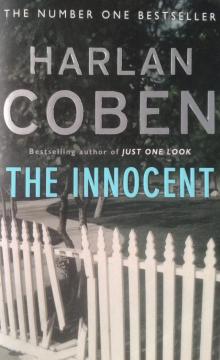 The Innocent
The Innocent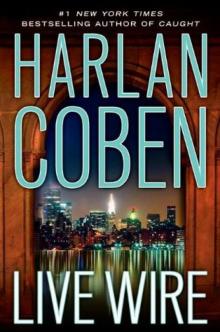 Live Wire
Live Wire Play Dead
Play Dead Drop Shot
Drop Shot Seconds Away
Seconds Away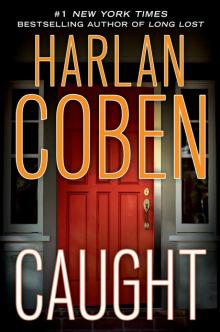 Caught
Caught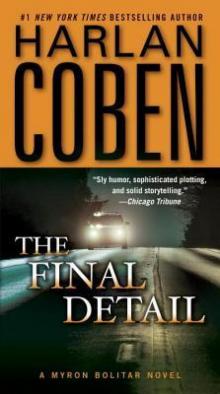 The Final Detail
The Final Detail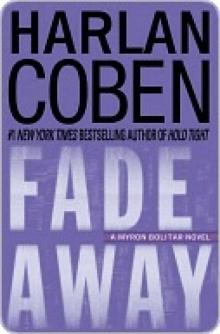 Fade Away
Fade Away Home
Home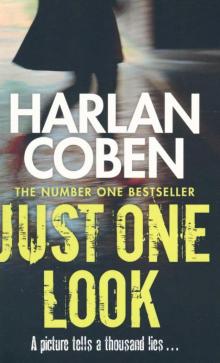 Just One Look
Just One Look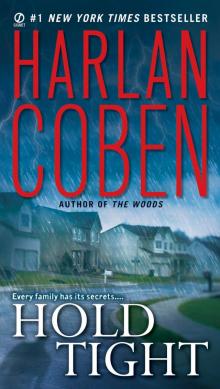 Hold Tight
Hold Tight Fool Me Once
Fool Me Once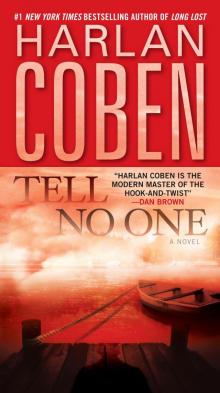 Tell No One
Tell No One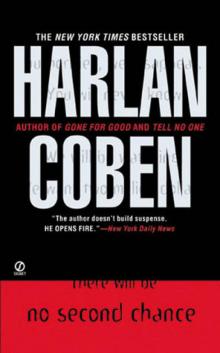 No Second Chance
No Second Chance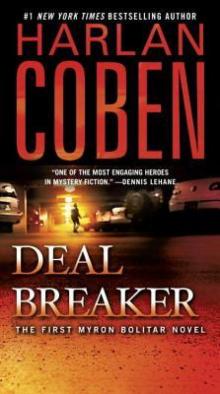 Deal Breaker
Deal Breaker Long Lost
Long Lost One False Move
One False Move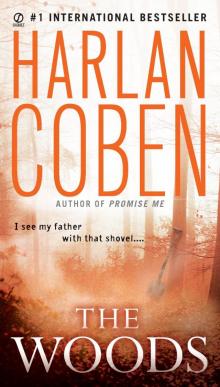 The Woods
The Woods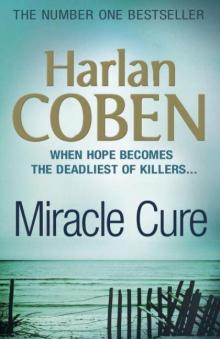 Miracle Cure
Miracle Cure Found
Found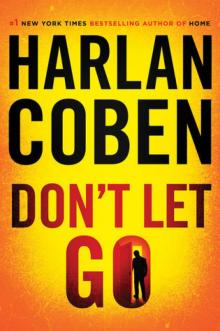 Don't Let Go
Don't Let Go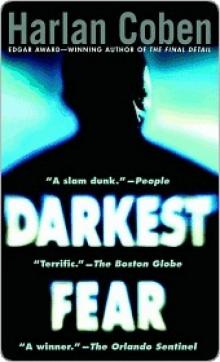 Darkest Fear
Darkest Fear The Stranger
The Stranger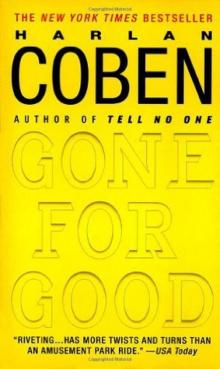 Gone for Good
Gone for Good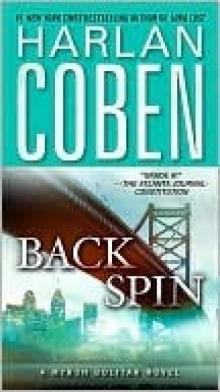 Back Spin
Back Spin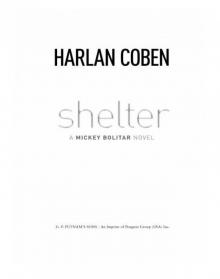 Shelter
Shelter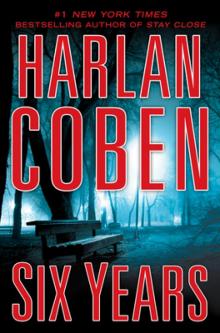 Six Years
Six Years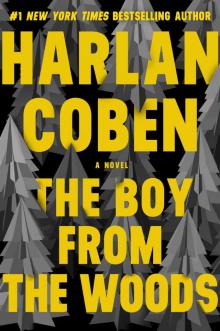 The Boy from the Woods
The Boy from the Woods Missing You
Missing You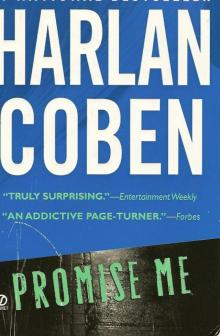 Promise Me mb-8
Promise Me mb-8 The Final Detail: A Myron Bolitar Novel
The Final Detail: A Myron Bolitar Novel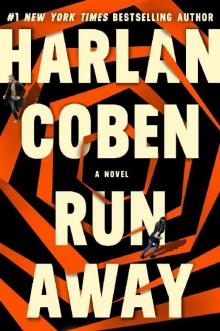 Run Away
Run Away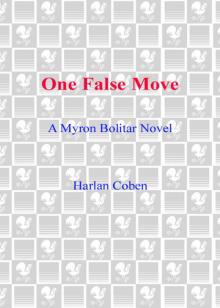 One False Move: A Myron Bolitar Novel
One False Move: A Myron Bolitar Novel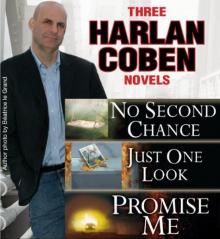 Three Harlan Coben Novels
Three Harlan Coben Novels the Woods (2007)
the Woods (2007) Tell No One (2001)
Tell No One (2001) the Innocent (2005)
the Innocent (2005)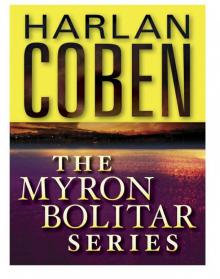 The Myron Bolitar Series 7-Book Bundle
The Myron Bolitar Series 7-Book Bundle Gone for Good (2002)
Gone for Good (2002) Caught (2010)
Caught (2010) Hold Tight (2008)
Hold Tight (2008)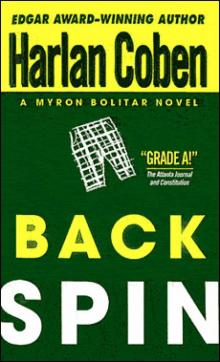 04 - Back Spin
04 - Back Spin Miracle Cure (1991)
Miracle Cure (1991) Harlan Coben 3 Novel Collection
Harlan Coben 3 Novel Collection Just One Look (2004)
Just One Look (2004)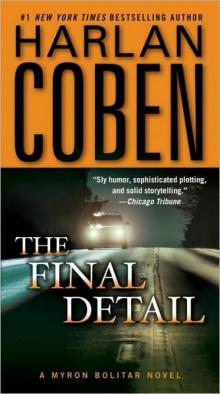 The Final Detail mb-6
The Final Detail mb-6 Play Dead (2010)
Play Dead (2010)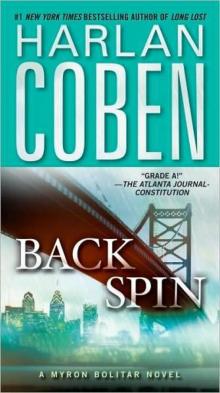 Back Spin mb-4
Back Spin mb-4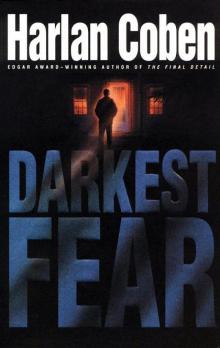 Darkest Fear mb-7
Darkest Fear mb-7